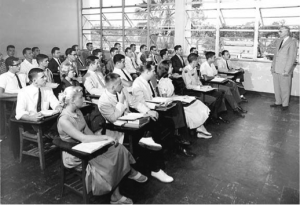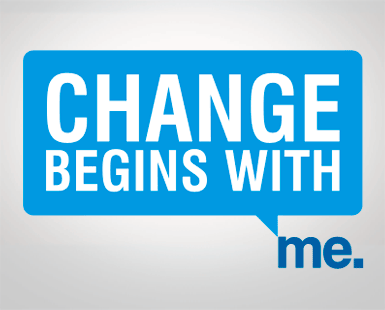We as educators are at a crossroads of change. We have a vague and blurred vision of where we should head, and a not so clear way to get there. We hear words like ‘personalization’, ‘blended’ and ‘mastery’, but all have our own interpretations of what those mean. The more articles or books I read, the more confusing but exciting it becomes.
Before I even begin to talk about my action plan there needs to be preamble, so here we go…
A really long Preamble:
Over the course of the last three years a few of my colleagues and I have been a part of a large change in the way we teach math. I’m no expert by any means, but just someone who is slowly working to chip away at the shift in math education (at least what I think it looks like). After a lot of research, tons of theoretical conversations with my amazing colleagues about pedagogy, and tons of adjustments along the way, here are some of the changes that we have implemented:

“Mastery Units”
- Units that have topics that lend themselves to tons
and tonsof practice, the students are put in charge of their learning where they work towards mastering ‘topics’ that are separated and displayed in the classroom at the beginning of the unit. - Students work towards mastery by first watching a video, completing a worksheet to practice, then completing a formative to prove to themselves and to me that they understand it.
- Students work at their own pace in their own time, with A LOT of support for me. They have guidance from me, and deadlines along the way. Often these ‘deadlines’ are vague like: “by next class you should have 4 worksheets done”. If I find a group of students are struggling with a concept or question – I use this opportunity to jump in and have a quick full class discussions
They can write tests early in the “Mastery Units” – I.e. We have test deadlines not days! (AH!)
- Students can write tests early. This change was terrifying for me. What do we do if they’re done early???? Turns out it doesn’t happen too often, and those students are more than happy to practice some math contest questions, complete an extra activity, or use the time to complete their portfolio – more on this later.
Conversations
- We have gone through the curriculum and pinpointed specific or general criteria that meet our need to evaluate the students by a conversation. We do this once per student once per unit. Often there is criteria (even in the math curriculum) that uses words like should be able to: describe….”. This, in our eyes, lends itself well to a conversation instead of a test question. I really enjoy the conversations and find they are a valuable piece of evaluation for each unit, as I really find out what each student knows, not what they can memorize.
Personalized – When Possible
Overall we’ve found that certain units and content are better taught a certain way. Skill based units generally are best when students are given ample opportunity to practice – this works perfectly with the personalized units. Graphing data and relationships is perfect for projects! Everything we implement includes the thought process of how can we make this as personalized as possible. By personalized we mean that there should be multiple entry points and we’re working on multiple exit opportunities too. We don’t even know what a truly personalized math classroom looks like yet!
I’ve helped to build all of these changes, but now what?
Some challenges we’ve had with the ‘mastery units’:
- Student organization
- Students have trouble tracking what they’ve done and where they have to go next. We’ve tried paper tracking sheets as well as digital, but find the students need teacher feedback to really know where they stand.
- Going many places to work on the same thing
- From the videos in Google Drive, to the worksheets on paper, to the formatives on paper or online – sometimes I can tell the students are frustrated with the gathering of information and resources to learn.
- Linear format

Image Source - Although we consider it personalized, because the topics are listed in numerical order I find the students often complete them in the order they are listed. I would like to find a way to make it really seem like there are multiple entry points.
- A lot of the same – need to switch it up
- We know that no student learns the same way, so why would we teach every unit the same way? It’s important that we’re always changing, and that includes the structure of personalized ‘mastery’ units.
- Student/teacher tracking
- I find myself tracking and marking constantly. This is fine when it sparks discussions between myself and students or students and each other, but can become a lot and would be great if there was a better way to track it.
After consistently researching and trying new things I’m more confused than ever. What really works in the classroom? I find myself searching for an answer, but is there one? Am I really going to find something to help me solve all of my problems? Probably not, but all I can do is chip away at my goals, continue to solve problems along the way and be crazy enough to change my thinking and practice…
The only thing that’s crystal clear to me is…
we want less of this:

And more of this:
[youtube]https://youtu.be/_DFJMQogd_o[/youtube]

Wow, this is huge! I love hearing what you have done to personalize the math classroom. Let’s talk more about the “more of this” type of learning next time we meet!
Thanks Ruth. And definitely! I don’t think I could ever get sick of it.
Christine, what a fantastic post. You’ve identified many of the questions that I’ve been struggling with and working on figuring out. I do think that this process of questioning that you are going through, this openness to possibilities, is what your students are learning to grasp. Perhaps this is more relevant then the actual content? I love your use of conversations, this is something that I’m currently looking into. How do you record your conversations?
Hi Alina,
We use a rubric to come up with a mark out of 10. They are only usually a couple of small topics per unit and the knowledge of the unit (in general) is not needed to complete the conversation. They usually take about 5 minutes per student, and are done throughout the unit.
Christine, this was inspiring! It comes at a time when I’ve just finished a quick Hangout on how to make DT concrete. You are well on your way. So I ask you this question: “How might you make this approach in math sustainable?” that is where I see your next step coming.
Some possible things for you to play around with:
1) Does every unit have to look like this?
2) What marking is most valuable to student learning?
3) What role can technology play in making the marking more sustainable?
Check out my quick screencast…it may spark some more ideas: https://plus.google.com/104517667538387919407/posts/3Gyhea2JquJ
Great work!
Hey Christine,
Incredible post! I love it! I find Math and French are very similar in that we have students who have a wide variety of skills and experience and that support is crucial in the development of these skills! I think there are a few things that I have done to reduce the “fracking” (everyone working in different spaces and at different times).
Flexible groups based on a entry card – if in fact they are exploring in a linear fashion, you could have them do a task at the beginning of class to see what they know. Based on that entry card, they are put into one of three activities that is based on their understanding or needs… then exit ticket. @trollwagen has done some great stuff around this! I would also consult @lesmcbeth to learn how to use Google Forms to help automate this… She’s unreal!
I love this idea, and you’re right, it’s important to vary the structure of your mastery units. Joe McCrae – https://twitter.com/J0eMcRae would be a great one to touch base with, @aruston & @reichholtz as well!
I think you’re on the right track and the fact that you’re pushing the boundaries of math is inspiring! Have you consulted Barbara Bray’s stuff? http://barbarabray.net/personalized-learning/ I would try to connect with her via Twitter and get in on the #PLearnChat on Monday, December 14th, 2015 at 7pm ET for Twitter chat #plearnchat – See more at: http://www.personalizelearning.com/p/plearnchat.html#sthash.Td60GLMC.dpuf
I’d love to hear more. Stay tuned for a Google Hangout and I hope you’ll share what you’ve been doing!
Christine,
We have been doing some of the same thinking over at the York School. Ruth just led an awesome DT workshop with the entire math department using very similar questions. You should really chat at the third face to face session. Here is a picture from the session. – https://twitter.com/jmedved/status/672771163790049280